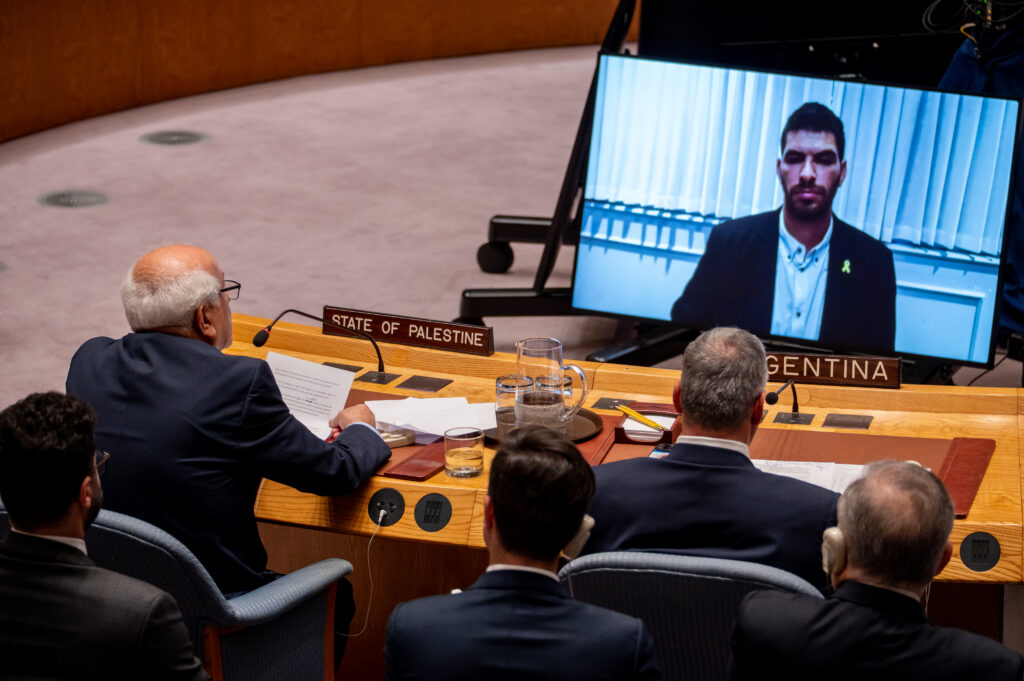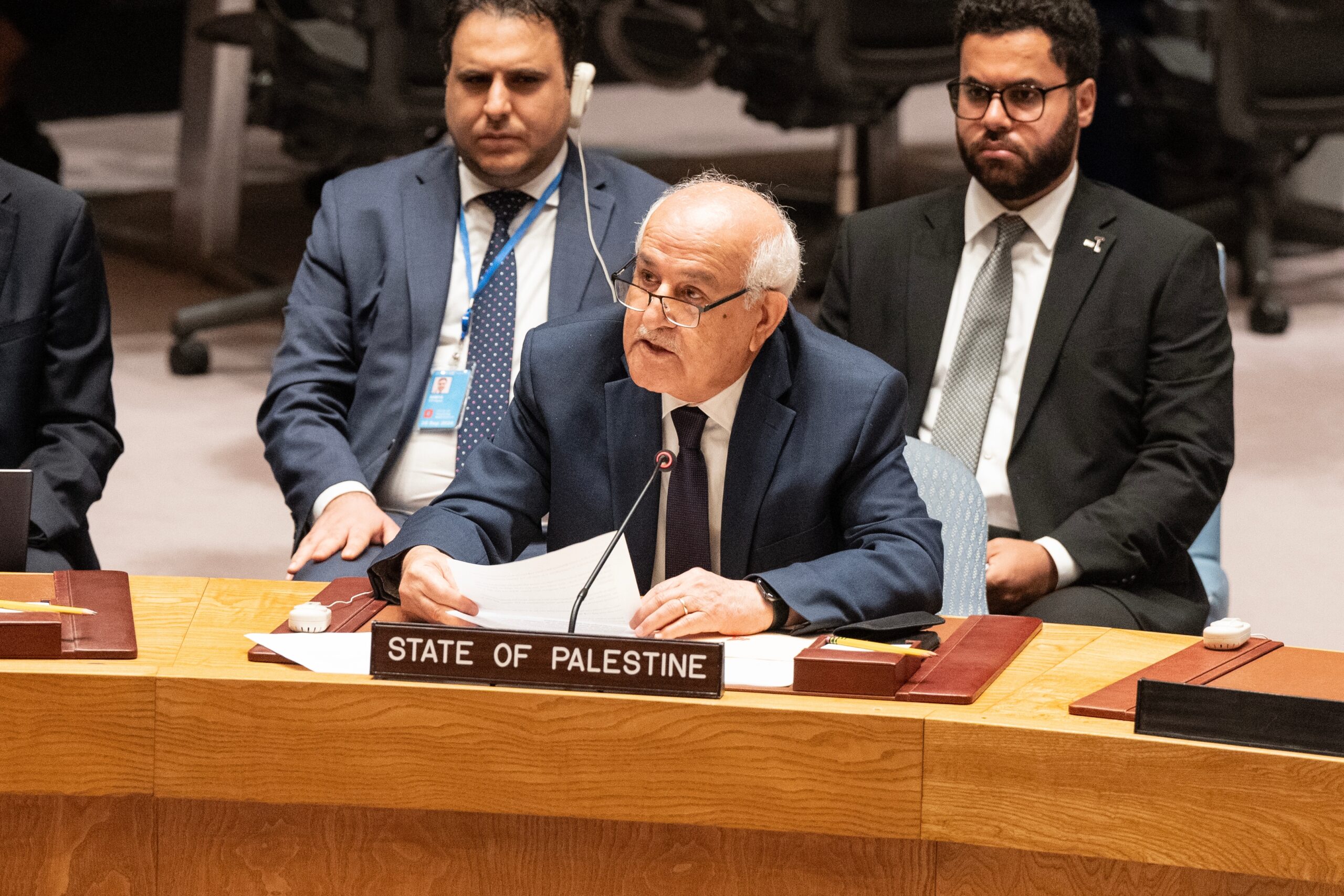The United Nations Security Council has sparked controversy by scheduling a critical meeting on the Gaza war during Rosh Hashanah, one of Judaism’s holiest holidays. The timing appears designed to prevent Israeli officials and observant Jews from participating in discussions about Israel’s ongoing conflict with Hamas.
According to a report by the Washington Free Beacon, the Security Council’s public calendar shows only that a “Middle East” briefing is slated for Tuesday, the first day of high-level debate at the U.N. General Assembly. However, sources familiar with the meeting revealed that it will focus specifically on the war in Gaza and was deliberately scheduled during Rosh Hashanah due to pressure from the Organization of Islamic Cooperation (OIC).
The OIC, which describes itself as the “collective voice of the Muslim world,” maintains a permanent delegation to the U.N. and includes members such as Iran, Qatar, Turkey, and Pakistan. Algeria, another OIC member, was reportedly “especially aggressive in pushing for the Gaza meeting to fall within Rosh Hashanah,” according to the Free Beacon’s reporting.
The Jewish holiday begins at sundown on Monday and concludes at nightfall on Wednesday. Notably, the U.N. General Assembly high-level debate continues for five days after Rosh Hashanah ends, providing ample opportunity to schedule the Gaza meeting at a time when all relevant parties could participate.
Rosh Hashanah holds profound meaning in Jewish tradition as the Jewish New Year and Day of Judgment. According to Jewish belief, this is the day when the entire world is judged by God, occurring seven days after the creation of the world. For religiously observant and even moderately observant Jews, participation in work activities or official meetings is prohibited during this sacred time, making the UN’s scheduling particularly exclusionary.
The timing has drawn sharp criticism from multiple quarters. One source familiar with the meeting described it as “yet another example of how the U.N. is a fundamentally unserious institution,” telling the Free Beacon: “It’s a farce for the Security Council to schedule this meeting on Rosh Hashanah, knowing Israel can’t participate or respond to the anti-Semitic dogpile that will take place.”

A former U.S. diplomat who worked on U.N. matters characterized the scheduling as “outright anti-Semitism,” explaining: “The United Nations has long had an anti-Israel problem—if not actual outright anti-Semitism—but purposely hosting such a meeting on one of the holiest days for the Jewish community is them going out of their way to exclude Jews who observe Rosh Hashanah and serves as a statement against the world’s only Jewish state.”
Sacha Roytman, CEO of the Combat Antisemitism Movement, emphasized that this scheduling “is not an oversight” but rather “a blatant act of exclusion.” He told the Free Beacon: “It tells Jews worldwide that their faith, their holy days, and even their very presence are irrelevant. By deliberately silencing Jewish voices at the very moment when decisions about Israel—the world’s only Jewish state—are being discussed, the U.N. is sending a chilling message: that Israel and the people it represents are unwelcome at the table.”
Jonathan Harounoff, the spokesman for Israel’s mission to the U.N., expressed frustration that international grandstanding around Palestinian statehood recognition is hindering efforts to secure the release of remaining hostages. “We’re seeing a lot of performative gestures and empty declarations that aren’t advancing peace—or anything in the region,” Harounoff said. “You cannot have serious conversations or conferences on these matters while 48 hostages remain in brutal Hamas terror tunnels and while Hamas continues to reign over Gaza.”
The families of hostages have also voiced opposition to the timing of Palestinian state recognition efforts. Sixteen hostage relatives, including mothers of hostages currently held by Hamas, recently wrote to U.K. Prime Minister Keir Starmer, stating: “Your regrettable announcement … has dramatically complicated efforts to bring home our loved ones.”
JUST IN: Hostage families write to @Keir_Starmer, warning recognition of a Palestinian state "has dramatically complicated efforts" to free the hostages.
— Eylon Levy (@EylonALevy) September 20, 2025
"Do not take this step until our loved ones are home and in our arms," they're begging him. pic.twitter.com/lSykuUwdPO
While the UN officially recognizes multiple religious holidays from different faiths in its calendar—including Christian holidays like Christmas and Good Friday, Islamic holidays such as Eid al-Fitr and Eid al-Adha, and other religious observances—the deliberate scheduling of major meetings during these holidays raises questions about institutional sensitivity to religious observance.
The UN’s own holiday calendar demonstrates awareness of major religious observances across multiple faiths. Yet, the decision to proceed with a Gaza-focused meeting during Rosh Hashanah suggests a selective application of this religious sensitivity. This appears particularly problematic given that the meeting directly concerns Israel, the world’s only Jewish-majority state, and affects the ability of observant Jewish diplomats and officials to participate in crucial discussions.
The meeting coincides with broader efforts by Arab nations and European allies to unilaterally recognize a Palestinian state during the U.N. General Assembly, a move designed to increase pressure on Israel to end its war against Hamas without conditions. The United Kingdom, Canada, and Australia recently announced joint recognition of a Palestinian state, and any meaningful recognition would require Security Council approval for full U.N. membership.
The controversy also reflects broader tensions about representation and fairness within international institutions. When religious observance prevents key stakeholders from participating in discussions that directly affect them, it raises fundamental questions about the legitimacy and inclusiveness of the decision-making process.
The scheduling of this Gaza meeting during Rosh Hashanah represents more than a simple oversight. The deliberate pressure from OIC members, particularly Algeria, to ensure the meeting fell during the Jewish holiday, combined with the availability of alternative dates, suggests a calculated effort to exclude Jewish and Israeli voices from critical discussions about the Middle East conflict.
This incident highlights ongoing concerns about institutional bias within the United Nations system. It raises important questions about whether the world’s premier international organization is living up to its founding principles of inclusivity and fair representation for all member nations and religious communities.
As the international community continues to grapple with the complex challenges of the Middle East, ensuring that all relevant voices can participate in crucial discussions—regardless of their religious observances—remains essential for achieving any meaningful and lasting resolution to regional conflicts.




